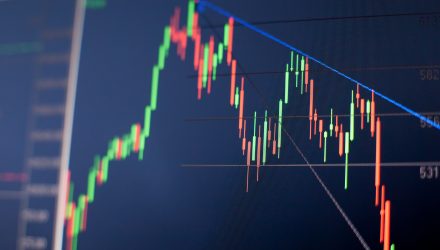While the U.S. and China continue to trade barbs at each other via a tariff-for-tariff scuffle, it opens up opportunities to purchase equities at a substantial discount like emerging markets exchange-traded funds (ETFs) like the Xtrackers FTSE Emerging Comprehensive Factor ETF (NYSEArca: DEMG).
A good majority of investors were driven away by the red prices in emerging markets (EM) during much of 2018. However, savvy investors who were quick to see the opportunity viewed EM as a substantial markdown.
From a fundamental standpoint, low price-to-earnings ratios in emerging markets ETFs have made them prime value plays as capital inflows continue in 2019.
Furthermore, Investors are increasingly emphasizing low cost a prime motivator for allocating capital in 2019, which makes ETFs like DEMG an attractive option. The fund provides smart beta EM exposure at a paltry 0.35 percent expense ratio.
DEMG seeks investment results that correspond generally to the performance, before fees and expenses, of the FTSE Emerging Comprehensive Factor Index. The index is designed to provide core exposure to emerging market equities based on five factors – Quality, Value, Momentum, Low Volatility and Size.
Companies are weighted based on their relative exposure to all of the aforementioned factors. Companies that do not exhibit the necessary characteristics are not eligible for inclusion in the fund. DEMG uses a representative sampling indexing strategy to track the index, meaning it generally will invest in a sample of securities in the index whose risk, return and other characteristics resemble the risk, return and other characteristics of the index
According to the IMF, the world economy will grow at a 3.3 percent pace, which is 0.2 percent lower versus the initial forecast in January. Nonetheless, strength in leading markets like the U.S. with its healthy labor market are keeping global growth afloat.
“The global picture is still fairly robust,” said Luke Oliver, Head of U.S. ETF Capital Markets for DWS.
Oliver also cited China as one of the primary reasons for sustaining global growth. Of course, it’s difficult to talk international investing to an investor without mentioning the world’s second largest economy.
A mix of Chinese stimulus measures have been providing the fodder for economic growth, such as lower taxes, no corporate tax breaks, monetary policy adjustments, and more market access for foreign companies to set up shop. All in all, Wall Street is looking at the Chinese government’s latest efforts as a plus for its economy, which makes it rife for investment.
“We all intuitively know that China will be the largest economy in the world–it’s not ‘will it be,’ it’s ‘when it will be,’” said Oliver.
In fact, China is becoming less resistant to safeguarding its businesses, which will open the pathways to more foreign investment.
“These fiscal measures that have been going in with these VAT (value-added tax) cuts, we think that’s increasing confidence in China so we definitely think there’s some good upside,” said Oliver.
For more market trends, visit ETF Trends.
